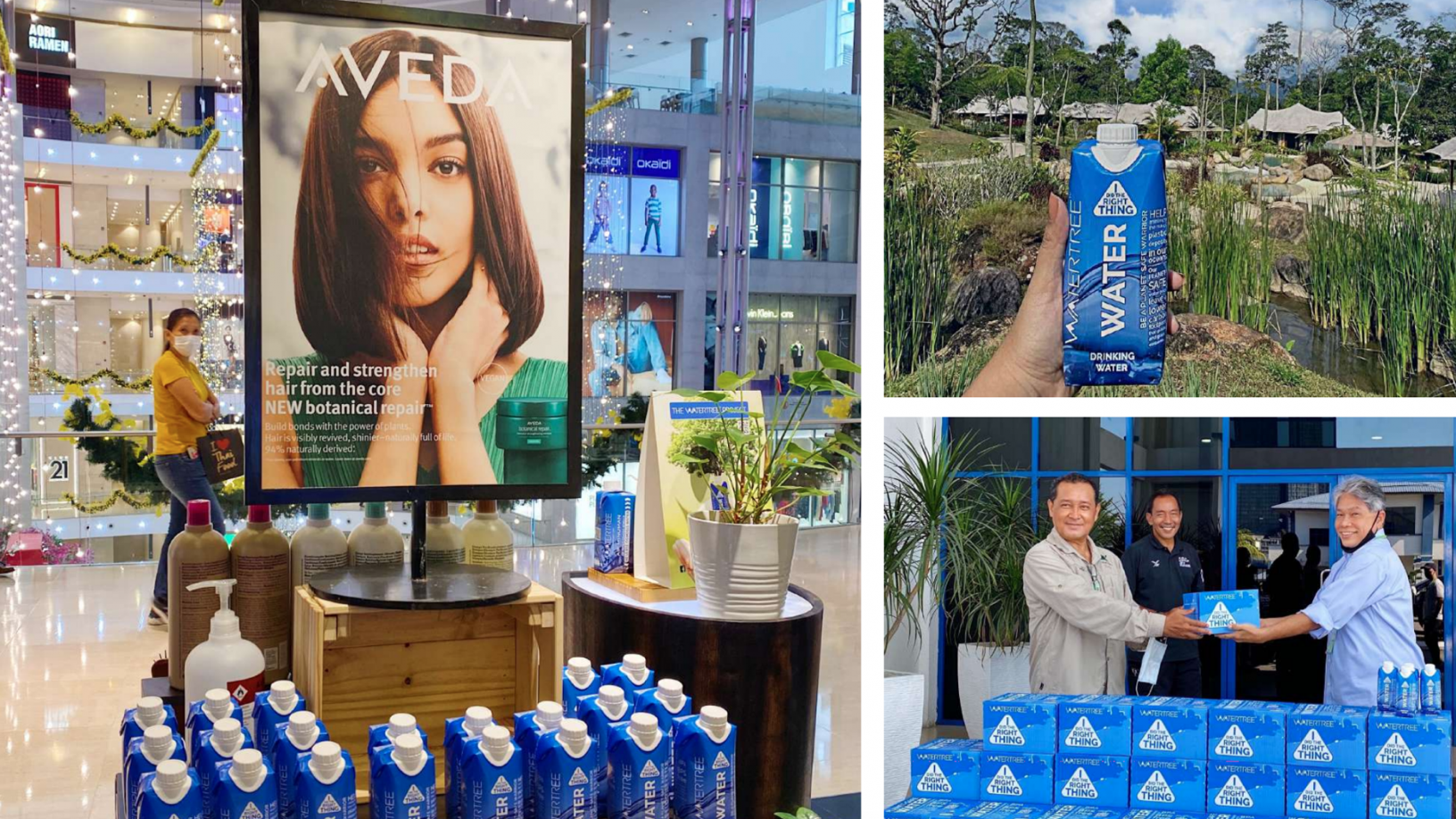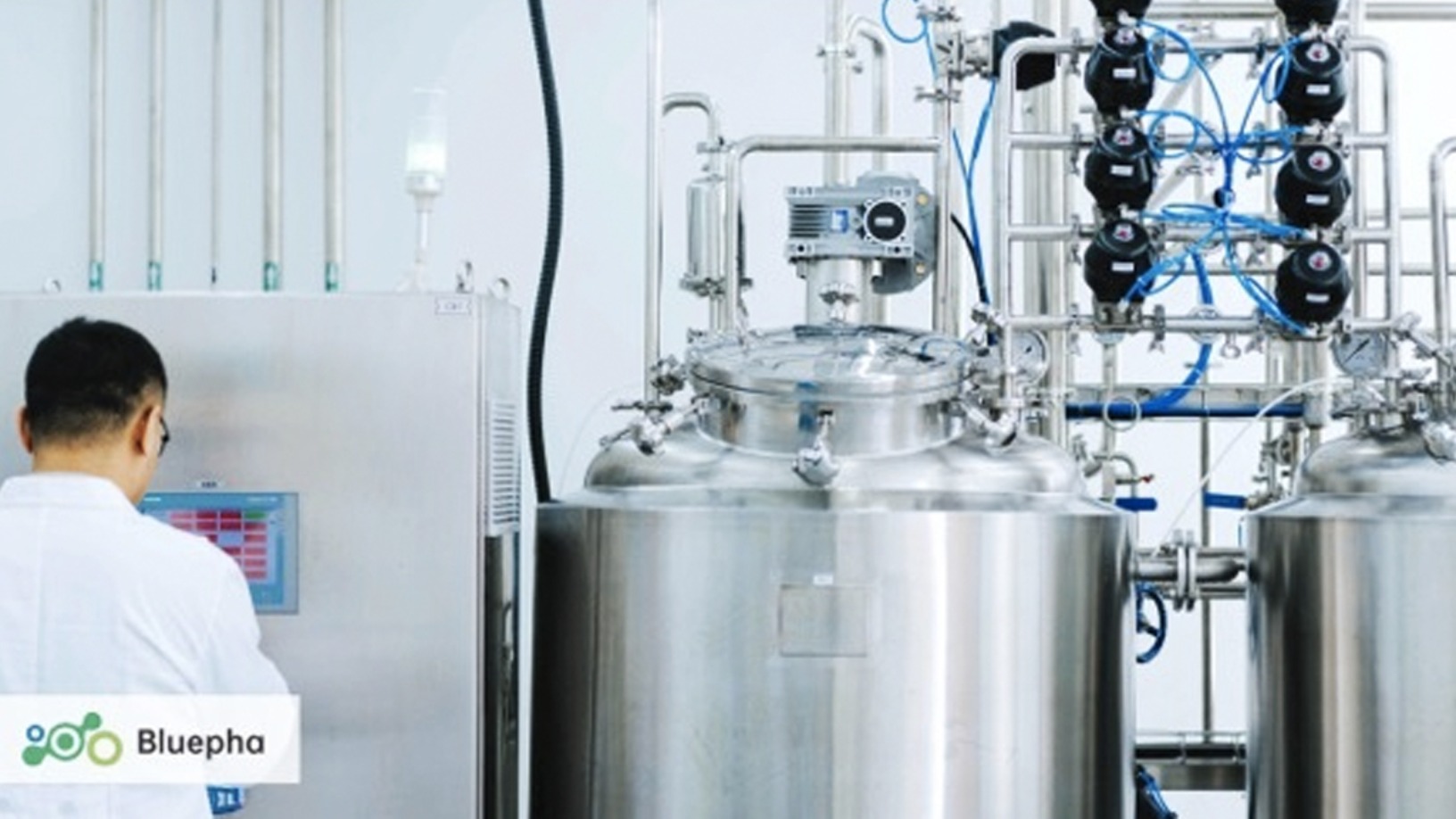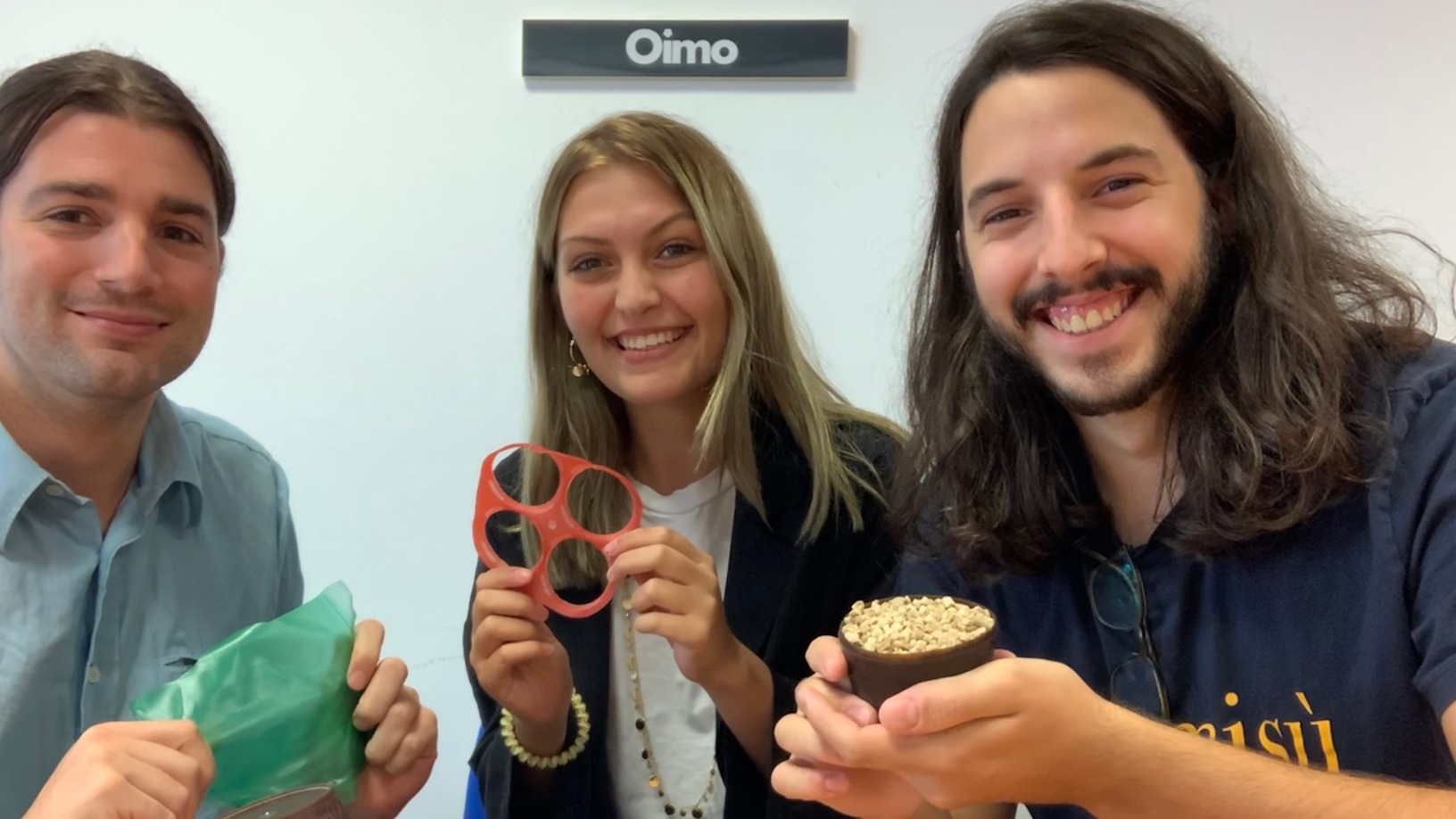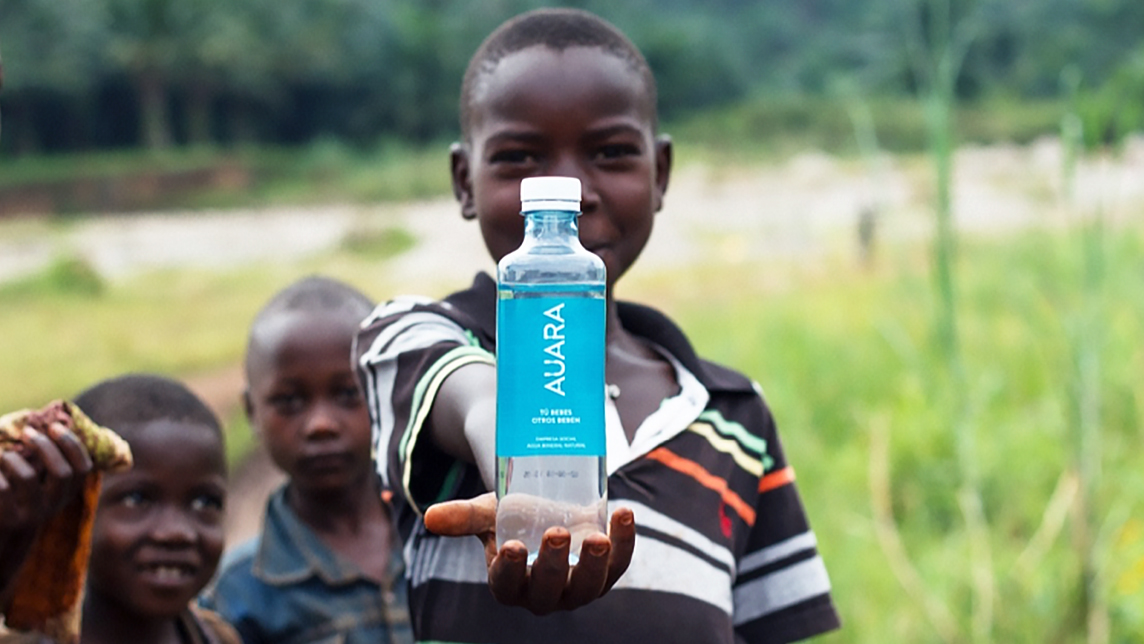Bottled water appeared on the market in the 16th century. Hundreds of years later, the invention of PET, which led to a significant decline in packaging costs, made it a mainstream beverage container, but along with its popularity came grave challenges. About 1,500 plastic bottles end up as waste in landfills or oceans every second, and it takes 400–700 years for them to degrade in the environment.
Struck by news in 2018 that a whale that washed ashore in Indonesia had almost 1,000 pieces of plastic items, including bottles, bags and straws in its stomach, Malaysian Christine Teh decided to do something about plastic bottle waste in her home country.
“It’s really sad because aquatic animals cannot differentiate between food and plastic,” she told CompassList at a recent interview. “It just brings home the sheer magnitude of plastic pollution below the surface that we cannot see,” said Teh, a trained lawyer who has worked in many roles in finance and business
Teh and her associate Paul Rogers, an engineer, wanted to make a change in Malaysia and, in 2019, co-founded Watertree – the first carton-packed water brand in the country. "The idea is to make the package from as many renewables as possible,” Rogers, Watertree’s CEO, explained during the interview.
In Malaysia, over 12m single-use plastic bottles are produced every month, and only 16% of them are collected for recycling. Watertree had aimed to reduce the single-use plastic water bottle consumed monthly in Malaysia from 11m to zero by the end of 2024, but “Covid has blown that target out of the water,” Rogers said. The startup believes its project will remove 10m plastic water bottles out of the system in 2022, as outdoor activities resume.
Watertree’s “boxed” water pods are now available in Kuala Lumpur’s three premium supermarkets as well as online at Lazada and Poptron. Although the carton-packed water is four times more expensive than bottled water, “young people accept it instantly,” said Rogers. “We try to keep profit margins as low as possible,” added Teh, now Watertree’s CFO.
Cartons from renewables
Watertree’s carton, designed by the startup and manufactured by Tetra Pak – the Swedish company specialized in food and beverage packaging – comprises 75% wood fiber sourced from responsibly managed forests. “The trees are extracted under rigorously certified conditions, and they're grown for paper,” Rogers said. The carton cap is made from sugarcane processed into ethanol and eventually plastic, with a much lower carbon footprint than plastics derived from fossil fuels.
Watertree’s cartons are also free of Bisphenol A (BPA), an industrial chemical found in many polycarbonate plastics and food packaging, which leach into liquids or foods packed in them. "According to the Mayo Clinic, exposure to BPA is a concern because of possible health effects on the brain and prostate gland of fetuses, infants and children,” Teh said.
Packaging made from renewables is only the first step. Notwithstanding the debate about whether carton-packed water is more environment-friendly than bottled water, for the Watertree team, recycling used cartons is the key to sustainability.
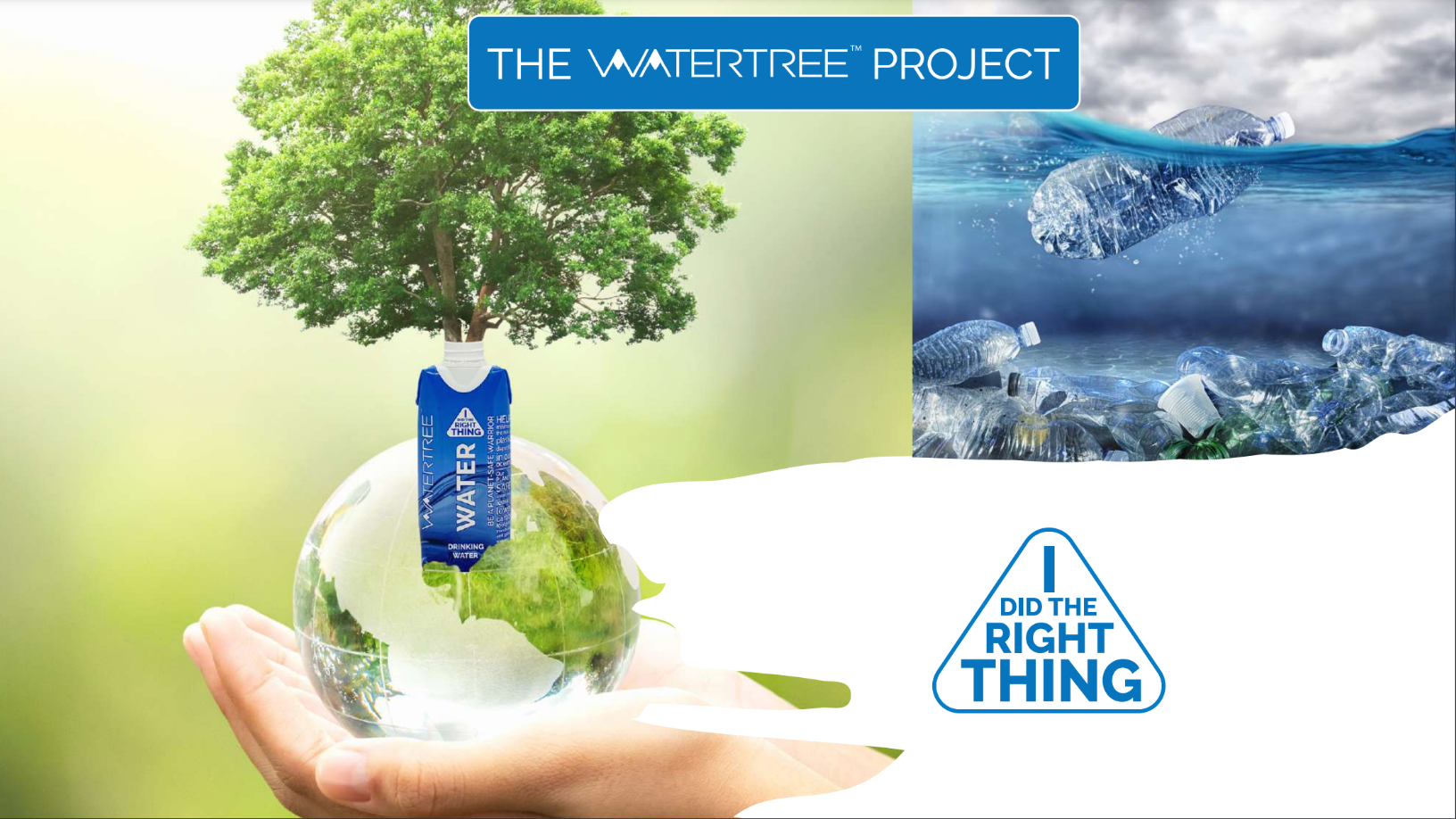
The main argument against boxed water is paper cartons have a lower recycling rate than plastic bottles because specialized equipment is needed, but Rogers is undeterred.
“In Malaysia, we believe that carton probably has a much higher recycling rate than plastic. Plastic is expensive to recycle, and municipal waste systems are not designed to separate and sanitize used plastic. It is much cheaper for plastic producers to use virgin plastic. If our cartons go into a [recycling] bin, there's a one-in-three chance they will end up in the right recycling facility,” he said.
In Malaysia, Tetra Pak has a recycling ecosystem, the result of 15 years of efforts. “We have a [partner recycling] plant in [the Malaysian state] Selangor, which can take Tetra Pak cartons and produce very high-quality paper out of them,” he added. “You can use the paper to create anything from cardboard for industrial packing to riding pants or carrying bags.”
The interior of Watertree’s carton has a thin layer of plastic and aluminum sheeting to protect the paper from getting soaked. Watertree minimizes the environmental impacts of that by improving recovery and recycling. The plastic and aluminum are separated from the cartons and combined to form a composite material that can be used to make roof tiles, bins and desktops. Meanwhile, the water used in this separation process is filtered and re-used, generating no toxic outflow into the local environment.
To get as many used cartons as possible for recycling, Watertree offers business clients a pick-up service to collect cartons and deliver them to the recycling plant.
Focus on businesses
“Our main target is always enterprises,” Rogers said. “They are the biggest consumers of plastic bottled water, and against the backdrop of regulation of ESG disclosure, more [businesses], especially the big ones, are looking for a new option."
To date, Watertree has landed Malaysia’s biggest mobile virtual network operator redONE, insurance company Allianz, aluminum die-cast components producer Teknicast, MFE Formwork Technology, Alkahfi Lestari Oil & Gas and the Royal Malaysia Police Football Club as its clients.
Watertree offers a circular consumption model, where used cartons are collected and recycled into new paper products by a specialist partner into notepads and carry bags for its business clients’ internal use. “At least two hotel chains want to take that on board,” Rogers said.
The startup is confident that the trend of going eco-friendly among enterprises will survive the pandemic. “We’ve had 14 months of lockdown [in Malaysia]. Many businesses, especially hotels and restaurants, have been operating in survival mode, but we’ve managed to secure many significant enterprise users as customers and CSR partners,” Rogers said.
Watertree also offers co-branding opportunities to companies, which can have their own branded water and get their eco messages on the packages. “It not only helps increase their brand awareness but also gives its people a little bit of pride,” Rogers said.
Attracting the young
Watertree is also targeting the younger generation. “We market our products to Generation Z, known as the Zoomers, born after 1997. They're very aware of issues like climate change and the toxic effects of plastic pollution,” Teh said.
“They want real positive action for their environment, and they will direct their purchasing power to causes that they believe in and will protect their future.”
Watertree currently sells 330ml and 500ml packs, but it has more products in the pipeline. “We are introducing infused water of different flavors like lemon, cucumber and apple," Teh said. "We want to add something interesting and hope different colors will help grab the attention of the younger generation.
Watertree has launched several social media campaigns to engage younger consumers, like inviting its customers to upload photos on Instagram to show how they reuse Watertree cartons. According to Rogers, many have reused the cartons to plant seedlings or make other types of DIY crafts.
Raising public awareness
Watertree is not currently focusing on making money. “At this stage, we want to win mindshare by highlighting the scale of the problem as well as offering major enterprise clients sustainable alternatives to single-use plastic,” Teh said. This also partly explains why the startup was named The Watertree Project. “We are a project. We are not just focussed on product replacement but also raising public awareness along the way,” she added.
The startup has no plans to raise money from external investors in the near future. “We have sufficient funds to support our initial go-to-market strategy for the first five years,” Rogers said. “Our backgrounds are a combination of tech, law, finance, marine and aviation, so we are used to longer-term planning horizons,” Teh added.
Watertree is also exploring market opportunities in neighboring Singapore. “It’s connected via a proven road transport network. We also understand that Singapore gets most of its existing plastic bottled water from Malaysia anyway,” Rogers said.
According to Rogers, consumers bringing personal water bottles will probably be the norm in the not-so-distant future for environmental and health reasons. He hopes that carton-packed products will serve the water-on-the-go market as a last resort.
“If we have both market and social momentum with us, 50m plastic bottles can be removed in 2023 and so on," he added.
